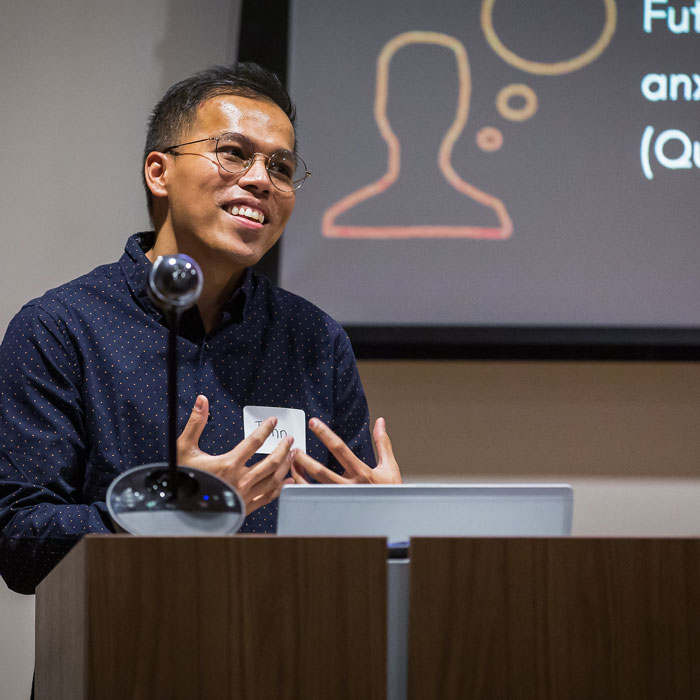Graduate Research
Opportunities for Graduate-Level Research.

Graduate Research Symposium
The Symposium combines Graduate Research Evening and the Three Minute Thesis (3MT®). Please visit the Graduate Research Symposium webpage for more details.
Graduate Research Evening
This event provides graduate students the opportunity to present their research projects. Participating graduate students are also eligible for the Hutchinson-Lahman-Larkins Research Award.
This award helps graduate students present their research at a national or regional conference. Award winners receive travel funding to present at a professional conference.
Research Evening Programs
| Spring 2025 | Spring 2024 | Spring 2023 | Spring 2022 |
| Fall 2021 | Spring 2021 | Fall 2020 |
Research Day
Student Showcase of Artists and Scholars
Graduate Student Research
Graduate student research stories
